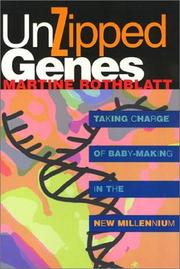| Listing 1 - 10 of 59 | << page >> |
Sort by
|
Book
ISBN: 2707131024 9782707131027 Year: 1999 Volume: 270 Publisher: Paris : Découverte,
Abstract | Keywords | Export | Availability | Bookmark
 Loading...
Loading...Choose an application
- Reference Manager
- EndNote
- RefWorks (Direct export to RefWorks)
Bibliotheek François Vercammen
Multi
ISSN: 17259177 ISBN: 9291678856 9789291678853 Year: 2006 Volume: no. 9/2006 Publisher: Luxembourg Publications Office
Abstract | Keywords | Export | Availability | Bookmark
 Loading...
Loading...Choose an application
- Reference Manager
- EndNote
- RefWorks (Direct export to RefWorks)
Air pollution. Air purification --- Europe --- Emissions trading --- Greenhouse gas mitigation --- Echange de droits d'émission (Environnement) --- Gaz à effet de serre --- Réduction --- broeikaseffect --- Europa --- Greenhouse gases --- Environmental policy --- Environmental aspects --- Evaluation. --- Civil & Environmental Engineering --- Engineering & Applied Sciences --- Environmental Engineering --- Milieu 504.7 --- Milieubeleid 504.7:338 --- Gas 662.76 --- Luchtverontreiniging 614.71 --- Klimaat 504.38 --- EG / Europese Unie 339.543EC/EU --- Echange de droits d'émission (Environnement) --- Gaz à effet de serre --- Réduction --- Europa.
Book
ISBN: 2707114502 9782707114501 Year: 1984 Publisher: Paris La Découverte
Abstract | Keywords | Export | Availability | Bookmark
 Loading...
Loading...Choose an application
- Reference Manager
- EndNote
- RefWorks (Direct export to RefWorks)
Bibliotheek François Vercammen
Industrial sociology --- Industrial relations --- Industrial management --- Sociologie industrielle --- Relations industrielles --- Gestion d'entreprise --- Congresses --- Congrès --- Taylor, Frederick Winslow, --- Industrial engineering --- -#SBIB:316.334.2A552 --- #SBIB:HIVA --- 65.01 --- 331.103.3 --- Organisatie van het werk 658.387 --- AA / International- internationaal --- 658.300 --- 658 --- Management engineering --- Simplification in industry --- Engineering --- Value analysis (Cost control) --- Partijen en strategieën in de onderneming: scientific management, tijds- een bewegingsstudies, beoordelingstechnieken, Taylorisme, kwaliteitsmanagement --- Industriële psychologie en ergonomie. Arbeidsverrijking. --- Taylor, Frederick Winslow --- -Congresses --- Congresses. --- Congrès --- #SBIB:316.334.2A552 --- Industriële psychologie en ergonomie. Arbeidsverrijking --- Taylor, F. W. --- Teĭlor, F. --- Taylor, Frederico Winslow, --- Industrial engineering - Congresses --- Taylor, Frederick Winslow, - 1856-1915 - Congresses --- Taylor, Frederick Winslow, - 1856-1915

ISBN: 0745609252 0745609244 9780745609256 Year: 1997 Publisher: Cambridge Polity press
Abstract | Keywords | Export | Availability | Bookmark
 Loading...
Loading...Choose an application
- Reference Manager
- EndNote
- RefWorks (Direct export to RefWorks)
Bibliotheek François Vercammen
Employees --- Human-machine systems. --- Work --- Effect of technological innovations on. --- Forecasting. --- Personnel, Effets des innovations sur le --- technologische vooruitgang --- -Human-machine systems --- Operator-machine systems --- Human-machine systems --- Systèmes homme-machine --- Travail --- Effect of technological innovations on --- Forecasting --- Prévision --- #SBIB:316.334.2A554 --- Human operators (Systems engineering) --- Human subsystems (Systems engineering) --- Man-machine control systems --- Man-machine systems --- Partijen en strategieën in de onderneming: technologische verandering en zijn effecten op structuur en inhoud van de arbeidsposten --- Engineering systems --- Human engineering --- Technological innovations --- Employees - Effect of technological innovations on. --- Work - Forecasting.
Book
ISBN: 9066171391 Year: 1994 Publisher: Amsterdam De Balie
Abstract | Keywords | Export | Availability | Bookmark
 Loading...
Loading...Choose an application
- Reference Manager
- EndNote
- RefWorks (Direct export to RefWorks)
Dit boek bevat de vertaling van Haraway's bekenste essay 'Een cyborg manifest'. In dat artikel toont ze aan dat allerlei oude tweedelingen (waaronder vrouwelijk/mannelijk) achterhaald zijn en poogt ze een nieuw perspectief te creëren. Ze gebruikt daartoe het concept van de cyborg, een kruising tussen mens en machine. Haraway's artikel wordt ingeleid door een uitgebreid essay van Karin Spaink. Het eerste deel daarvan traceert de verwikkelingen tussen techniek en mensen; in het tweede deel wordt Haraway in het feministische debat gesitueerd; in een laatste deel worden enkele van de vele (vreemde) verschijningsvormen van de cyborg beschreven.
techniek --- feminisme --- Engineering sciences. Technology --- Artificial intelligence. Robotics. Simulation. Graphics --- Community organization --- Sociology of the family. Sociology of sexuality --- Feminism --- Feminist currents --- Technology --- Theory --- Book --- Cyber-feminism --- Cyborgs
Book
ISBN: 2707114278 9782707114273 Year: 1983 Volume: 11 Publisher: Paris La Découverte/Maspero
Abstract | Keywords | Export | Availability | Bookmark
 Loading...
Loading...Choose an application
- Reference Manager
- EndNote
- RefWorks (Direct export to RefWorks)
Bibliotheek François Vercammen
Automobile industry and trade --- Competition, International --- Automobiles --- Concurrence internationale --- Industrie et commerce --- 629 --- -Automobile industry and trade --- Automobielsector 629.113 --- International competition --- World economics --- International relations --- International trade --- War --- Automotive industry --- Motor vehicle industry --- Transport vehicle engineering --- Economic aspects --- 629 Transport vehicle engineering --- Automobile industry and trade - France --- GEOGRAPHIE INDUSTRIELLE --- FABRICATIONS METALLIQUES
Book
ISSN: 02927527 ISBN: 2130378137 Year: 1982 Publisher: Paris IRM
Abstract | Keywords | Export | Availability | Bookmark
 Loading...
Loading...Choose an application
- Reference Manager
- EndNote
- RefWorks (Direct export to RefWorks)
Bibliotheek François Vercammen
Automobiles --- Entreprises multinationales. --- Industrie et commerce. --- 629.11 --- 658.11 --- 629.113 --- 658.114 --- Kinds and forms of enterprise --- Mechanically powered vehicles. Motor vehicles. Automobile engineering --- Forms of enterprise in general. Private businesses --- 658.114 Forms of enterprise in general. Private businesses --- 629.113 Mechanically powered vehicles. Motor vehicles. Automobile engineering --- 658.11 Kinds and forms of enterprise
Book
ISBN: 9789058267733 Year: 2011 Publisher: Leuven : Davidsfonds,
Abstract | Keywords | Export | Availability | Bookmark
 Loading...
Loading...Choose an application
- Reference Manager
- EndNote
- RefWorks (Direct export to RefWorks)
BMLIK
History of civilization --- Hydraulic engineering --- Flanders --- Architecture --- Belgium --- erfgoed --- C3 --- scheepvaart --- 581 Monumentenbescherming, cultureel erfgoed --- Kunst en cultuur --- Rivers --- Flanders (Belgium) --- Guidebooks --- 985.3 --- Vlaanderen--reisgidsen --- Cultureel erfgoed--Vlaanderen --- Waterlopen--Vlaanderen --- 980 --- scheepvaart geschiedenis --- Vlaanderen patrimonium --- geografie België --- géographie Belgique
Book
ISBN: 2735108546 2906769568 2735119033 9782906769564 Year: 1999 Volume: 4 Publisher: Toulouse Paris Octarès Maison des Sciences de l'Homme
Abstract | Keywords | Export | Availability | Bookmark
 Loading...
Loading...Choose an application
- Reference Manager
- EndNote
- RefWorks (Direct export to RefWorks)
Cet ouvrage présente une approche anthropologique des transferts de technologies qui relève d'une trajectoire entièrement originale où l'anthropologie des techniques se combine à l'analyse ergonomique du travail pour répondre à ce que l'on nomme classiquement une « demande sociale ». Sur le littoral de Guinée, les populations susu utilisent traditionnellement d'importantes quantités de bois pour produire du sel. Ces techniques contribuent la déforestation des zones de mangrove. Depuis plusieurs années, des actions sont engagées pour prévenir ce phénomène. Beaucoup ont échoué faute de tenir compte des pratiques des populations dans leur environnement. Un programme s'est démarqué des actions précédentes. Il proposait de transférer des modules de production de sel qui ne nécessitent aucune utilisation de bois. Pour les concepteurs du projet, le succès du transfert de l'innovation était étroitement dépendant des dimensions sociales et culturelles des populations. L'auteur nous fait entrer au cœur du transfert. On découvre les univers respectifs des hommes, le rôle de l'histoire et les oppositions d'intérêts. Au fil des pages, d'étonnants réseaux d'acteurs apparaissent. L'implication de l'ethnologue est au centre de l'ouvrage. On parcourt les phases de son action, de l'analyse de la demande à la présentation des résultats qui ont orienté les acteurs du programme vers la mise en œuvre de choix techniques mieux adaptés aux dimensions sociales et culturelles des contextes de réception. Le lecteur trouvera dans cet ouvrage des éléments de méthode qui devraient alimente! les débats sur l'intégration et le rôle des sciences sociales dans le cadre des transferts de technologies.
Economic anthropology --- Technology transfer --- Agriculture --- Human engineering. --- Susu (African people) --- Sel --- Salines --- Marais salants --- Écologie des mangroves --- Transfert de technologie --- Technologie --- Soussou (Peuple d'Afrique) --- Social aspects --- Anthropological aspects. --- Social life and customs. --- Industrie --- Aspect anthropologique. --- Aspect anthropologique --- globalisering --- mondialisering --- Ethnology --- Salt industry and trade --- Anthropologie sociale et culturelle --- Écologie des mangroves --- Soso (African people) --- Sosso (African people) --- Soussou (African people) --- Susso (African people) --- Ergonomics --- Human factors in engineering design --- Bioengineering --- Environmental engineering --- Industrial engineering --- Human comfort --- Human-robot interaction --- Technological transfer --- Transfer of technology --- Diffusion of innovations --- Inventions --- Research, Industrial --- Technology and international relations --- Foreign licensing agreements --- Technological forecasting --- Technological innovations --- Technology --- Anthropology --- Commerce, Primitive --- Economics, Primitive --- Economics --- International cooperation --- transfert de technologie --- écologie --- anthropologie --- industrie --- Guinée --- marais salant --- sel --- mangrove --- commerce

ISBN: 1566395542 Year: 1997 Publisher: Philadelphia Temple university press
Abstract | Keywords | Export | Availability | Bookmark
 Loading...
Loading...Choose an application
- Reference Manager
- EndNote
- RefWorks (Direct export to RefWorks)
Explains the biotechnology of the Human Genome Project in terms we all can understand. Not limiting her bioethics to the realm of abstraction, the author maintains that her new bioethics of birth can lead to the end of abortion and unwanted pregnancy and the creation of a world in which people can achieve a greater solidarity with one another.How will we handle baby-making and pregnancy in the next 5, 25, and 75 years? New reproductive technology, genetic screening, and DNA-mapping have changed the 20th-century rules. In this revolutionary manifesto, Martine Rothblatt proposes a code of ethics to guide childbirth decisions in the brave new world of biotechnology. The trigger for Unzipped Genes is the Human Genome Project, a multibillion dollar effort to unlock the secrets of the human genetic code. This new "genomic" knowledge can be used for tremendous good, such as curing disease, or unprecedented harm, such as the kinds of master race eugenics already visible in Asia, where social pressures force families to choose to abort female fetuses. Without a bioethics of birth, we risk creating a new kind of racism, which Rothblatt calls "genism," based on officially sanctioned genetic characteristics.Unregulated genetic decision-making can open the door to invasion of privacy, efforts to eliminate certain kinds of people from the gene pool, or government or corporate efforts to gain control of the human genome.Rothblatt bases her bioethics of birth on four principles designed to empower the beneficial potential of genomics without unleashing genism. First, we must agree that the human genome belongs indivisibly to us all. Second, we must allow each person an unfettered right to intentionally create in his or her children new versions of the genome without limitations on its genetic characteristics. Third, we must insist that society has a right to help prevent unwanted pregnancies. And finally, we must ensure that genetically influenced characteristics - from skin tone to predispositions to disease, from sexual orientation to various mental inclinations - will not be the basis of discrimination of any kind.Writing concretely and persuasively, Rothblatt explains the biotechnology of the Human Genome Project in terms we all can understand. Not limiting her bioethics to the realm of abstraction, she maintains that her new bioethics of birth will lead to the end of abortion and unwanted pregnancy and the creation of a world in which people can achieve a greater solidarity with one another.Author note: Martine Rothblatt is an international high-tech lawyer and speaker on bioethics in Washington, D.C. She is also the Chairperson of the Bioethics Subcommittee of the International Bar Association and the author of The Apartheid of Sex.
Human genetics --- Human reproductive technology --- Transgenic organisms --- Genetically engineered organisms --- Genetically modified organisms --- GEOs (Genetically engineered organisms) --- GMOs (Genetically modified organisms) --- Organisms --- Genetic engineering --- Genetics --- Heredity, Human --- Human biology --- Physical anthropology --- Law and legislation --- Moral and ethical aspects
| Listing 1 - 10 of 59 | << page >> |
Sort by
|

 Search
Search Feedback
Feedback About
About Help
Help News
News